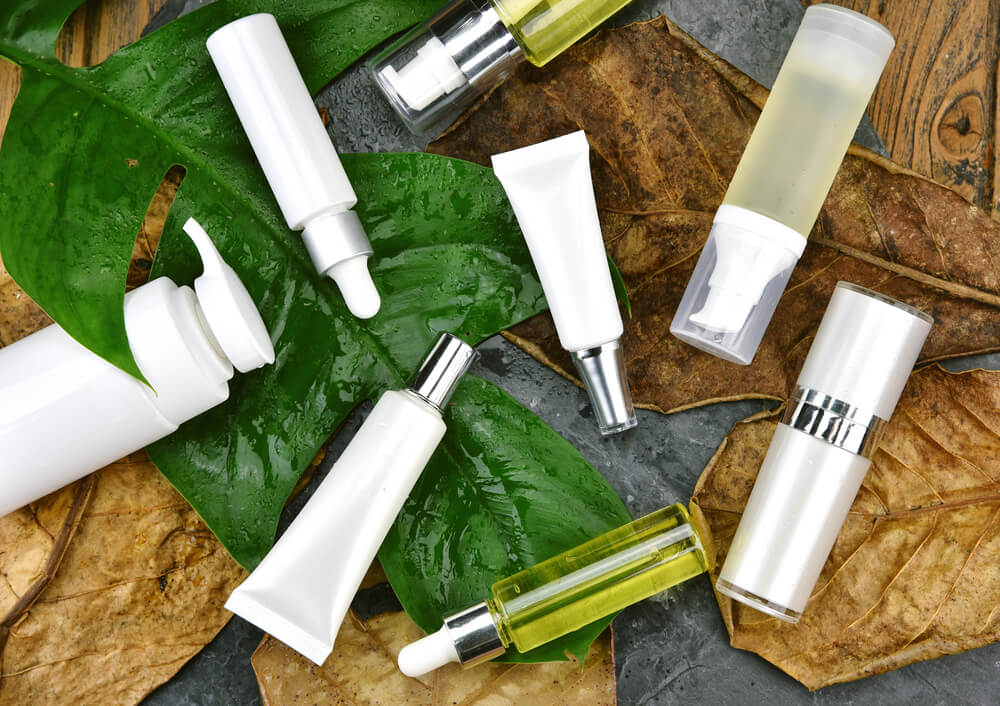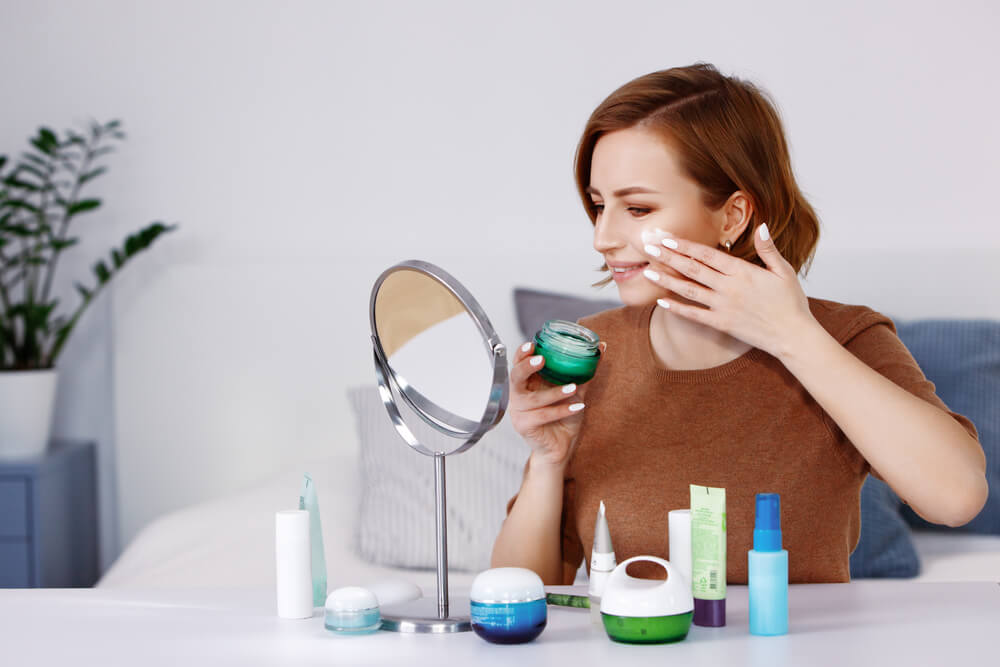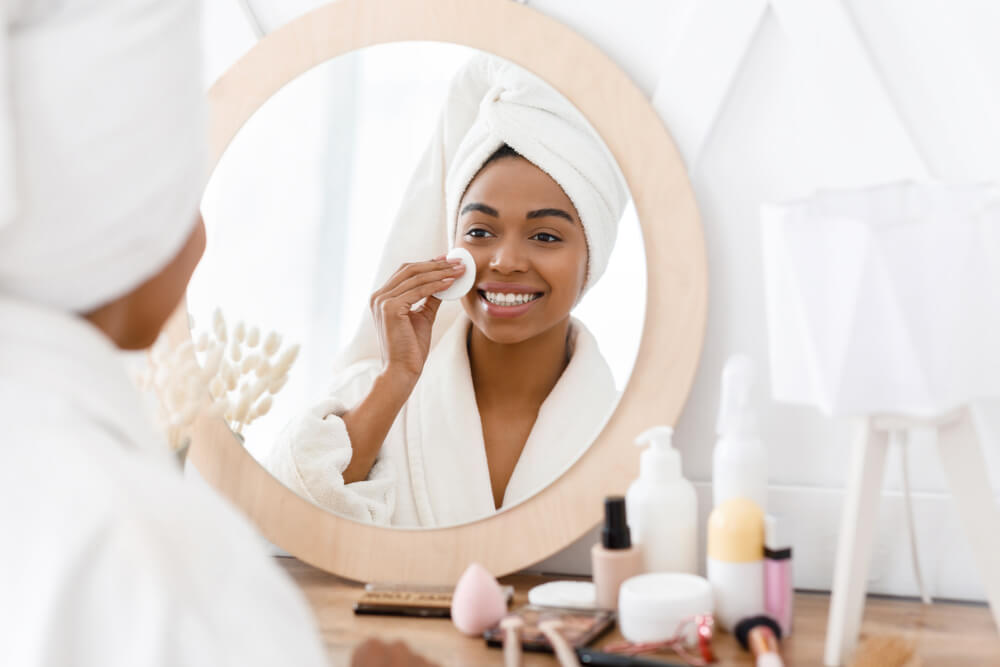Through the years, you have probably tried god only knows how many different skincare products, and after, what it seems, eons, you have finally found the ones that suit your skin perfectly.
However, not all of us have been so lucky. Some of us are still on the lookout, always searching for better, more absorbent, more cutting-edge cream that will take all our skin problems away.
In the middle of that search, our cabinets are full of different products from completely different brands, and now, when the time has come to settle for a particular one, we are in two minds about which one we should use or whether we should mix them in the first place?
Well, let’s sort out this mess in our cabinets and in our minds, and see what the rule of thumb here actually is.
Skincare Products 101

Now, as we all know, there are many (and we do mean many) different types of skincare products, so, before you decide to mix them all, you have to be able to differentiate between the basic types.
Drugstore Brands
These types of skincare products are usually made for everybody’s pocket and for a more widespread use, since they are on the cheaper side and quite accessible.
Drugstores are the perfect place to find good value for money, because you can easily find something that will suit your skin perfectly and not be that expensive.
However, opting for a drugstore product has its setbacks, too. You may end up with a product that has fewer active ingredients than a product from a professional line. You have to have in mind that these products are made for mass usage, which means they are generic. Some will work on your skin and fit perfectly to your skin routine, some will not.
When advertised, there is usually a claim that they are similar to those in the professional lines. But, it has to be said, that is simply not the case because they usually have coloring agents, fillers and binders which professional lines don’t.
Be that as it may, there are certainly more than enough perfectly good and satisfying skincare products in the drugstores. The only problem is finding the right one.
Professional Brands
As opposed to drugstore brands, professional skincare products can only be found in specific locations such as doctor’s offices and spas. Their essence lies in their active ingredients, and they are the result of extensive research and testing.
They are usually not as affordable, and the professionals who deal with selling them usually pride themselves on being exclusive distributors of these products.
The thing that differentiates these products the most from the ones you can find in a drugstore is the quality of the ingredients. Namely, the ingredients are usually organic, with no artificial additions to them.
So, as it can be seen, they are far from generic. They usually work better on your skin and cause fewer cases of irritation, again, due to more high-quality active ingredients.
Doctor Brands
These ones are actually a subtype of professional line of products, only more researched and more carefully made. They usually have the highest concentration of active ingredients which makes them the products of the highest quality and the ones that will have the best effect on your skin.
They are quite pricey and, if you are on a tight budget, unfortunately, they will probably be out of your price range. However, having in mind that skin is the biggest organ of your body, protecting your every other organ and absorbing all the harmful influence of the outside world, maybe it is not such a bad idea to redistribute your money and set aside enough to take care of your skin properly.
Mixing Skincare Brands – Yes or No?

Before making a final decision, it is always good to familiarize yourself with all of the pros and cons of any issue, right?
Right.
When it comes to mixing different brands, it is usually a grey area because you can never know for sure what the best fit will be for you. But some general recommendations won’t do you any harm.
Staying on the Safe Side – Why You Should Stick to One Skincare Brand
Compatibility
If a company comes out with a set of products of the same line, it is because they are usually designed to work well together. They are compatible and complement each other. They will deal with the same issues in different ways.
For example, if you have oily skin and you choose a set of products from the same line, they will deal with your skin appropriately, covering all the parts of your skincare regime.
They usually include ingredients that go well together and work best if they are used together. By boosting each other’s effect, they can work wonders for your skin.
Skin Condition
People with different skin problems usually go through hell to find the products that will fix their acne or eczema, for example. And once they have found a line of products that actually fit their needs, they stick to it as long as they can.
This is, also, one of the main reasons why they shouldn’t mix products. Finding a suitable mixture of ingredients that will relieve them from the problems they are having is not something they can find very often. And buying a whole range of products from the same line can only be beneficial, because all of the products are based on compatible ingredients.
Mixing products in this case would not be recommendable, especially if you are dealing with highly sensitive skin.
Let’s Mix It Up a Bit!
On the other hand, if you are willing to do just a bit of research when it comes to taking care of your skin, then rest assured you will find a plethora of products available on the market that will suit your skin perfectly!
You just need to pay attention to the information surrounding the product, and do a bit of experimenting at first.
Why is it good to be a bit wild with this one?
Well, first of all, nobody knows your skin better than you. Trying to use a whole set of products from the same brand doesn’t mean they will all fit you like a glove. Some may soothe your skin, some may cause irritation. Some can contain ingredients that your skin just can’t stand.
No two skins are alike, so there is no guarantee that what works for one person will, in fact, work for you, too. So, go crazy and discover what your skin needs without being “bullied” into buying and sticking to just one brand. If you try your best, you will most likely put together a better skincare product set than the one that has been made in advance and put on the shelves.
However, if you were just thinking about introducing just about anything in your skincare regime, please don’t. There are certain rules you will have to follow in order to mix and match ingredients in the best possible way in order to create the perfect combo.
Go Slowly

In order to get the best possible effect, it is important to introduce one brand at a time, and see how your skin will react to the new product.
For example, start with a product that usually goes first on your skin, i.e. a cleanser. If nothing bad happens to your skin in the form of skin rashes and irritations, you are good to go. Just pick another one, now, this time, let it be a toner, and, after that, a moisturizer.
Don’t Mix the Unmixable
This is tremendously important and mustn’t be disregarded in any way. It is something that will make or break your skincare regime.
Never mix brands if they contain retinol, glycolic acid, salicylic acid or peptides. There is only so much retinol your skin can actually absorb, so don’t torture it.
Some people will never feel the irritation when using a whole set of various products containing these same ingredients. But, you may not be among the lucky ones. Overusing the aforementioned products can cause skin irritation, breakouts and rash.
And you are trying to make a skincare regime to avoid these, right?
Check Compatibility
Different companies, different products, different ingredients. Not all ingredients go along well. Some are just not compatible. By using products from different companies, you risk buying two products that simply do not go together, and that can cause your skin more harm than good. So, pick your products wisely.
In addition, some ingredients neutralize each other and mixing them won’t be effective. For example, retinoic acid and glycolic acid are all acidic and they go well together. But, if you mix them with a product that has a higher PH, they will be completely ineffective.
Follow the Consistency Rule
Using products with different consistencies brings some risks to the table. If you use them wrong, you can affect the absorption and limit the total efficiency of the regime. Whereas, if you know the main rule, you will have no problems with this.
The rule is as follows: apply the products from thinnest to thickest.
You may wonder what that means, so here is a simple explanation – if you are using serums, toners, creams and lotions all at the same time, then you have to use them in the following order: toners, lotions, serums, creams.
Apply Sunscreen When In the Sun
The final step of every skincare regime should be sunscreen. It is not only there to protect you from the sun, but also to serve as a barrier between your skin and the outside world and the active ingredients.
Order, Order
Always apply prescription products before beauty ones.
This generally applies to people with sensitive skin that have already been given a specific product for their skin condition. It is of utmost importance that this rule be followed. The skin condition needs to be dealt with first.
Which Ingredients Should You Never Mix?

As we have already mentioned, if you have already decided to pick a different range of products from different lines, then there are simple guidelines you will have to follow in order to get the best out of all of them.
If not, there is a possibility that you will mix things that just can’t go together and, thus, create a problem. Not only will the mentioned products not work, but you might also get a skin irritation or a rash.
Vitamin C and Acids
If there is a combo you should definitely avoid, then this is it.
Acidic ingredients balance the pH levels of your skin, whereas Vitamin C works best at a lower pH level. So, by mixing them, you are making them cancel each other out. Instead of using the products to manage your skin’s pH levels, you are achieving quite the opposite effect.
Hydroquinone + Benzoyl Peroxide
Benzoyl Peroxide is used for treating blemishes, and hydroquinone for treating dark spots and acne scars. Mixing these two could lead to excessive bleaching and staining your skin. Now, don’t fret too much if this happens to you, because the consequences aren’t permanent. But, it’s always wise to try and avoid even temporary mistakes like this one.
Retinol and Vitamin C
Vitamin C is used for repairing sun damage on your skin and the damage caused by environmental pollutants. It deals with dark spots and has an anti-aging effect, due to its stimulation of collagen production. Retinol and retinoids have almost the same effect, but they are doing their magic with the help of Vitamin A.
You may think that, in that case, you should use both at the same time in order to get optimal results, but you would be wrong. They need different pH environments. For example, Vitamin C needs a pH that is less than 3.5, whereas retinol needs a pH environment that is between 5.5 and 6.
You can combine them, though, but at different times during the day. That is to say, you can use the Vitamin C cream or products in the morning, and the retinol one at night. In that way, you will bet the best of both worlds for your skin.









can I use Serave retinol serum and Murad retinol cream at same time ?